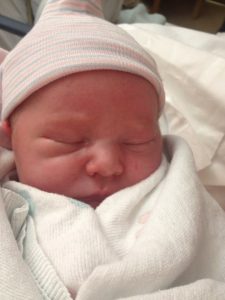Food, Love, and Attachment Trauma
Eating is fraught with complications these days. I’m not a nutritionist, but I work with people who have food issues….People who binge and then feel ashamed and worthless, people who starve and then binge, and people who eat mindlessly as a de-stressor (this was me, last weekend…on a road trip…with a bag of oatmeal-raisin cookies). Some of us who are most afraid of food develop eating disorders. Some of us just wish we could manage our food intake more consistently.
Over the hundreds of hours I’ve spent with clients who struggle with food, I’ve noticed a pattern. People with the most serious food problems distrust food and distrust themselves for needing it.
Here’s my theory…
Eating Problems are about ATTACHMENT.
Or more precisely, ATTACHMENT TRAUMA. That is, a breach in the safety of our earliest attachment moments – which probably involves feeding, to one degree or another.
When we’re born, the very first things that happen to us, or that should happen to us, involve being held and fed. We babies know instinctively that we must have the loving, nurturing presence of our mothers if we are to survive.
If our mothers are calm, safe, and responsive – and if we get our little bellies filled consistently, we learn to trust that food is plentiful, available, and that we need only signal our hunger and we’ll be fed, loved, and accepted completely as we are. This is a lot to pack into one feeding scenario, but it’s all there. I’m hungry, my mother notices this and takes care of me, so it must be normal and okay for me to NEED.
But if our mothers are distracted, sad, sick, depressed, anxious, or otherwise compromised, this sweet picture looks very different. Instead, we signal (cry) and the response is delayed or nonexistent – or maybe fraught with negative energy (fear, grief, or anger). Think of refugee mothers here. Think of mothers who don’t have enough resources to feed themselves or their babies. Think of mothers who are abused or otherwise unsafe.
As babies, we feel all of this. We know all of this…but we have no tools or language to make sense of it. The situation becomes coded in our bodies as implicit memory, an emotional state that has no words. This makes it powerful and difficult to identify. On some level, we feel:
- I am bad, unlovable, or wrong for needing. I’m alone.
- Food is scarce or scary or too important to be trusted.
- I can’t count on food or love to be there when I need it. So I better not need it. Or I better grab all I can get while it’s in front of me.
This is attachment trauma. And it’s how eating problems start. AT THE VERY BEGINNING. (Now, when I ask you about your birth, you’ll know why).
Lest you think I’m blaming your mom for how you eat, just consider what was happening to her and around her when you came into the world. Get the story. Take notes. Look at photographs. Ponder her emotional states. And then picture yourself there, as a tiny infant, a bundle of need.
All is not lost though. You may have the symptoms of a full-blown eating disorder. Yes, this problem was set into motion forty years ago. But we have the tools to heal it now. And if your mother wants to join us, all the better. EMDR repairs attachment trauma and helps the nervous system rewire itself for mindfulness and healthy eating. Let me know if you’d like to learn more about how EMDR can help you resolve the earliest trauma and move forward into a healthier lifestyle.
[dacta]



Like to Subscribe?
Get notified when Deborah shares new ideas, art, and creative health information for you.
You have Successfully Subscribed!
We respect your privacy. No information will be shared.